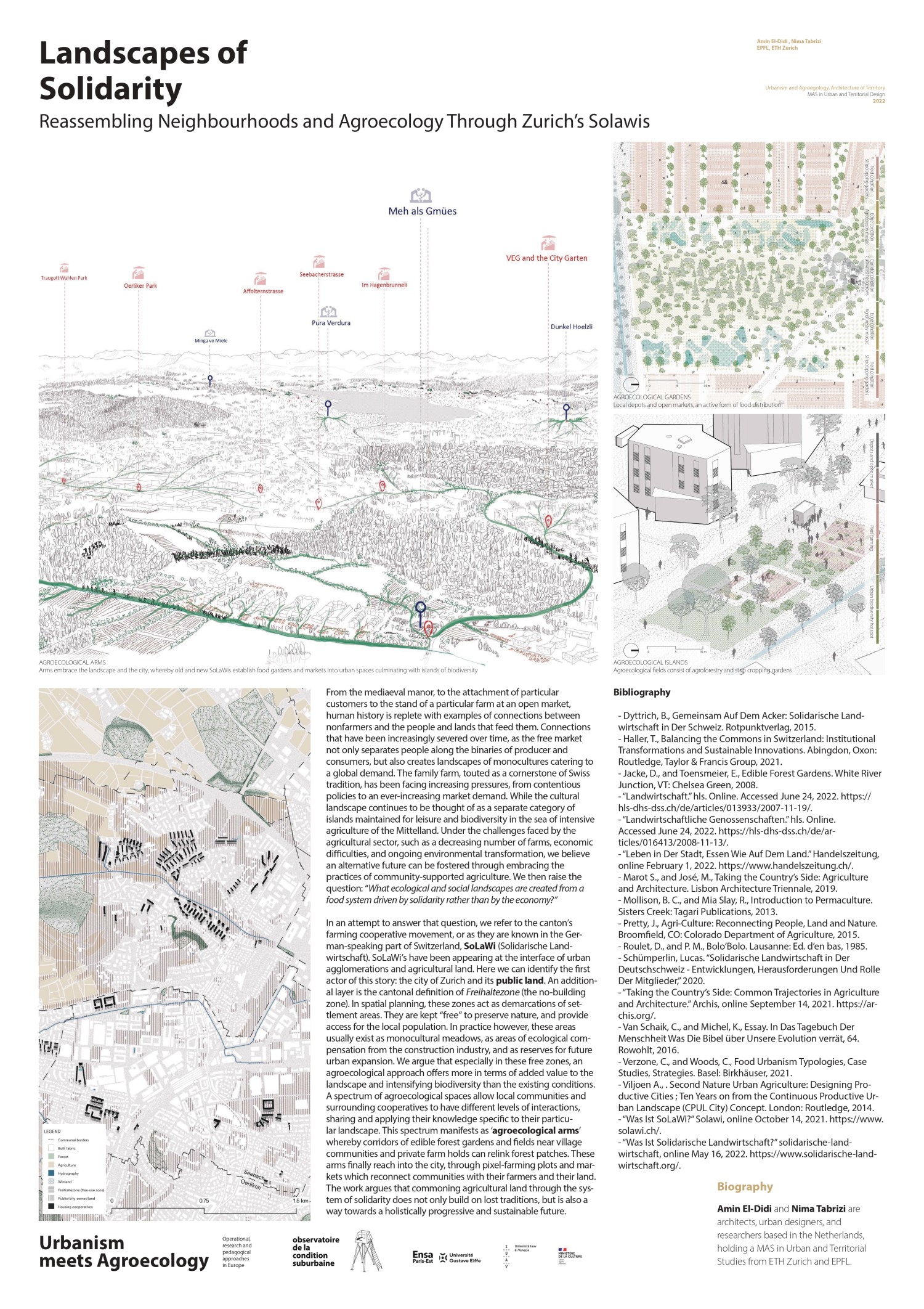Reassembling neighbourhoods and agroecology
Through Zurich’s SoLaWis
From the medieval manor to today’s farmers’ markets, history is filled with ties between people and the lands that feed them. These ties have weakened over time as the free market divided producers from consumers and shaped landscapes around monocultures serving global demand. In Switzerland, the family farm—once central to national identity—faces pressure from economic demands and controversial policy shifts, while “cultural landscapes” are seen as preserved islands for leisure and biodiversity, surrounded by the intensive agriculture of the Mittelland. In this context, with fewer farms, mounting environmental concerns, and growing socio-economic pressures, we ask: what landscapes emerge when food systems are guided by solidarity instead of market forces?
To explore this, we turn to Zurich’s Solidarische Landwirtschaft (SoLaWi) cooperatives—communitysupported agriculture initiatives forming between urban regions and farmland. A key player is the City of Zurich and its public land, especially areas designated as Freihaltezonen—zones left unbuilt to protect nature and provide public access. Yet, in practice, these zones often consist of monocultural meadows, ecological compensation fields, or land reserved for future development. We argue these spaces can be transformed through agroecology to host richer biodiversity and foster social and
ecological value.
SoLaWis demonstrate how a spectrum of agroecological activity—from village orchards and shared fields to urban pixel-farming and direct markets—can form ‘agroecological arms’ that reconnect fragmented forest patches, farmlands, and communities. These cooperative landscapes support knowledge exchange and local resilience while resisting industrialised food systems. Ultimately, commoning land through solidarity agriculture revives cultural traditions and nurtures a more just, sustainable, and inclusive future.
Amin El-Didi is a practising architect and urban designer based in the Netherlands, worked with Buro Sant en Co and FABRICation. He holds a joint MAS in Urban and Territorial Studies from EPFL and ETH Zurich. His interdisciplinary work explores the social, political, and environmental dimensions of space through spatial design, research, and visual media. Originally from Cairo, his early work at Cairo Lab for Urban Studies, Training and Environmental Research (CLUSTER) focused on urban informality and localising the SDGs in African cities with several co-authored articles.
Nima Tabrizi is an urban researcher and designer based in Rotterdam, currently pursuing a PhD at TU Delft. His research focuses on spatial justice, design values, and socio-ecological regeneration. He holds a MAS from ETH Zurich and EPFL, and a MSc in Sustainable Architecture from the University of Tehran. He co-founded Atelier SigmaN, exploring regenerative design, spatial justice, and urban narratives, and serves on the board of the Workshop on REGENERATION. His work spans Iran and Europe in design, teaching, and writing.
← go back to
the programme
Affiche scientifique →
voir l'affiche en grand
